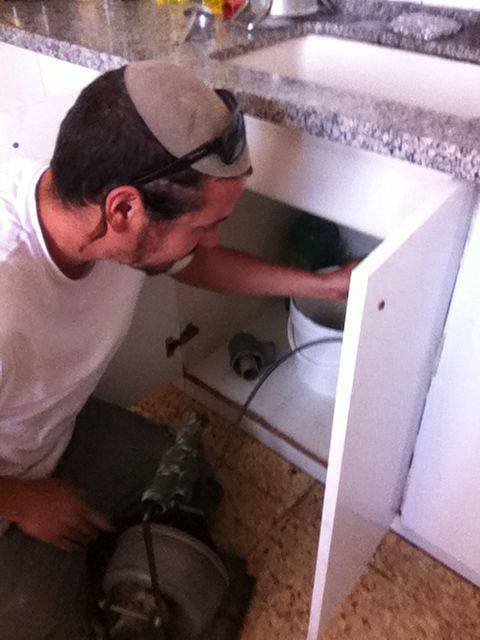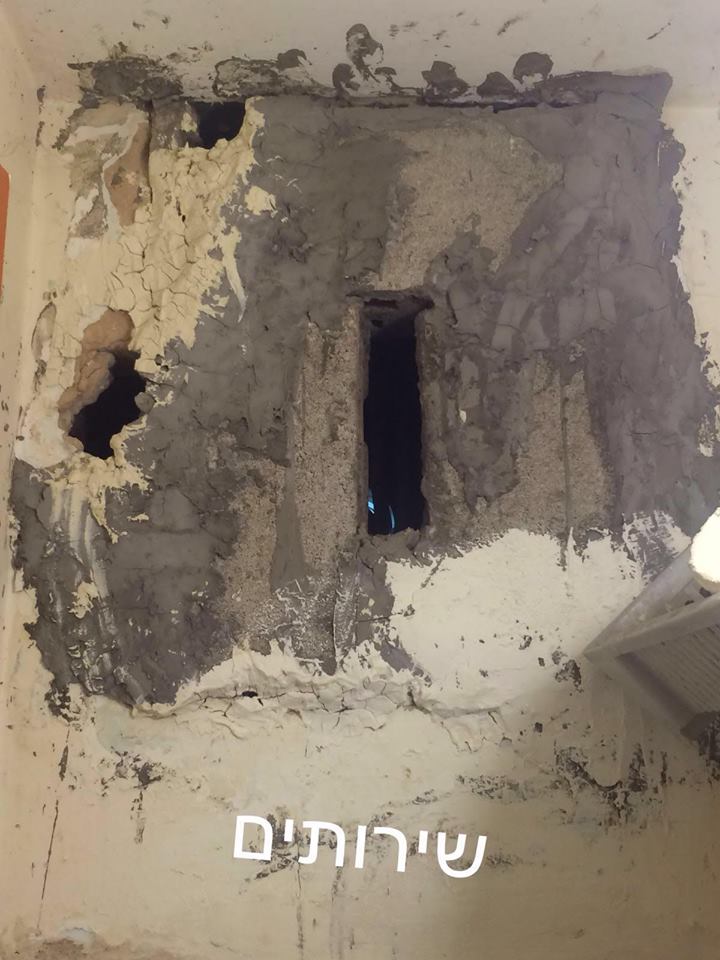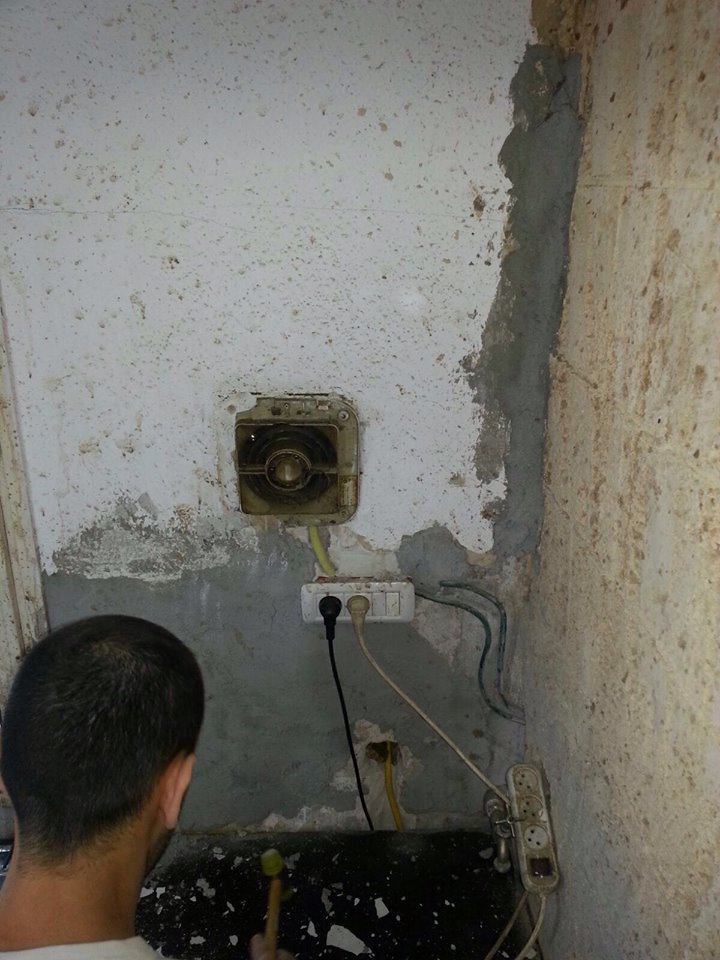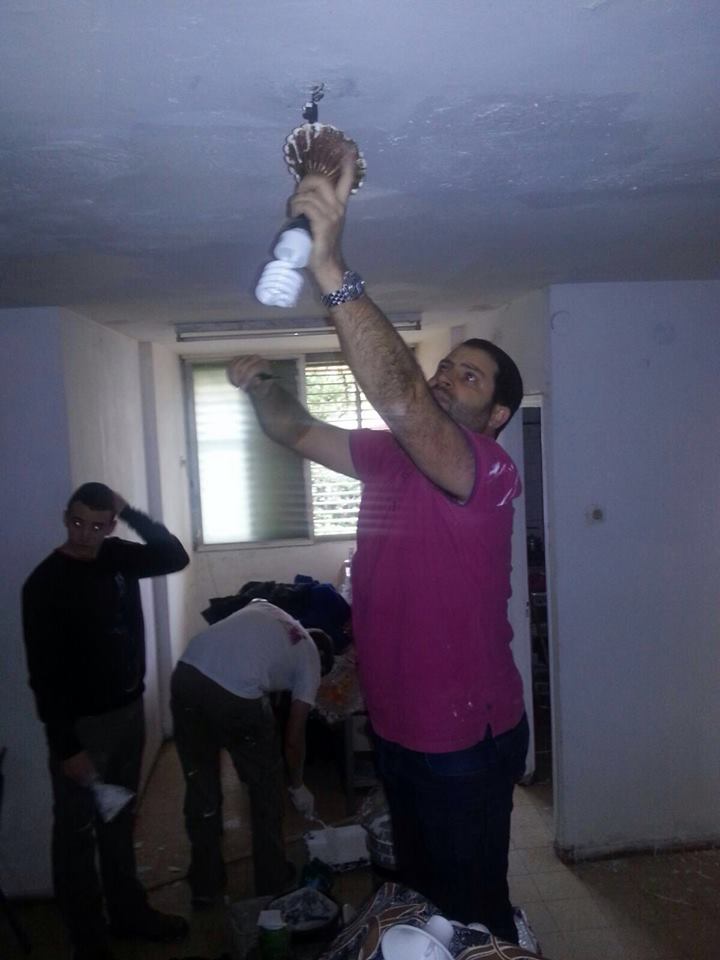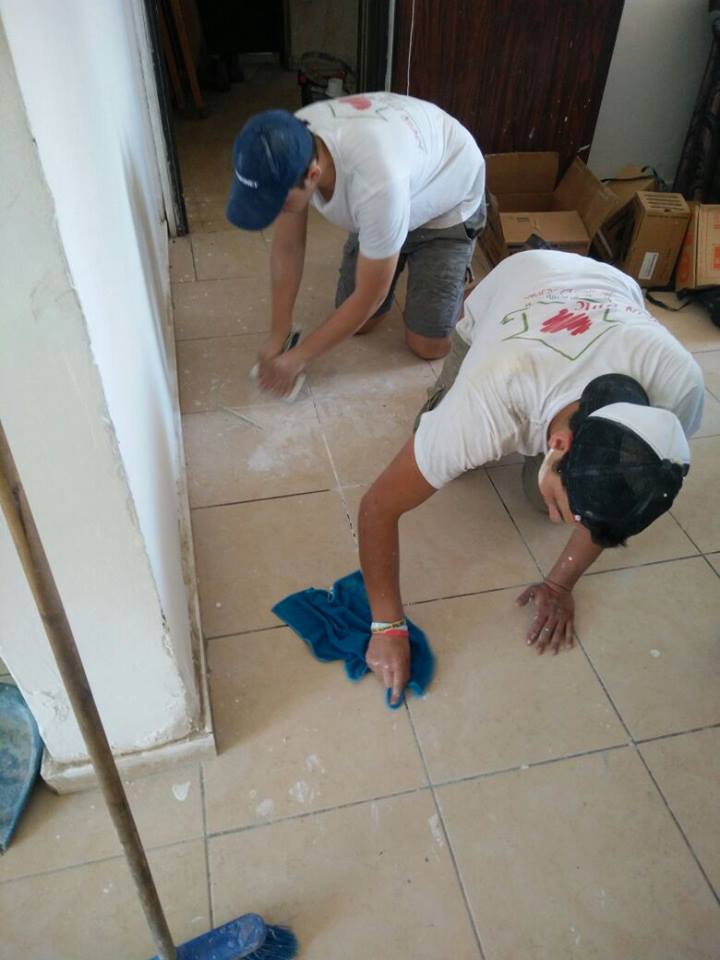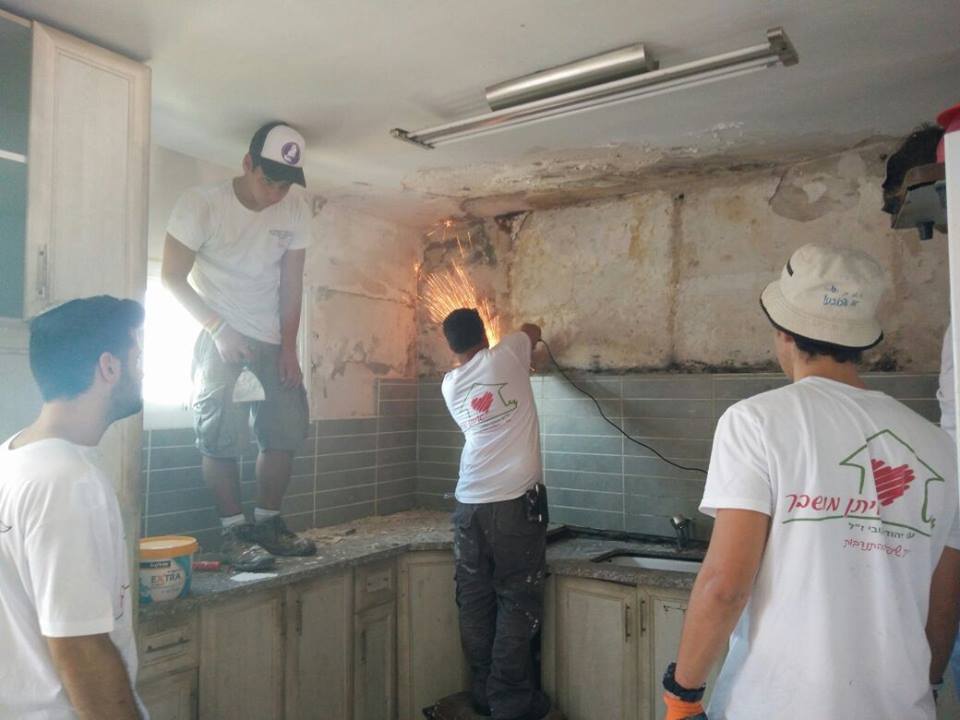The Volunteers Renovating Homes for the Needy: "As Far as We're Concerned - Children Will Not Live in Darkness Anymore"
How did a specific act of kindness turn into an organization with many volunteers spreading light in ruined homes? Beni Yakobi and Ofir Grady, initiators of the 'Eitan Moshavcha' association, discuss.

When Beni Yakobi and Ofir Grady from Kibbutz 'Be'erot Yitzhak' decided to take action and initiate a charity activity to renovate homes for the needy, they didn't believe that in a short time, their specific activity would turn into an organization with many volunteers visiting particularly old and run-down homes, working their magic: plaster, paint, and whatever is needed to give the home a fresh, clean look that is enjoyable to live in.
In just three years, the volunteers managed to reach over 120 homes in the areas of Or Yehuda, Lod, Bnei Brak, and Petah Tikva, with no end in sight, and not to mention the smiles...
What starts with filling 'random' holes in the walls often ends in heartfelt connections and filling 'emotional' holes, leading to a strong family bond with each of the 120 families whose lives were transformed beyond recognition, thanks to the renovations by the 'Eitan Moshavcha' organization. One of Grady's most defining moments was the day they entered the home of an orphaned girl who grew up without a father. "She lived in a dire state, even without a washing machine," Grady recounts in an interview with MYnet Rosh HaAyin. "Suddenly she saw a fatherly figure and authoritative friends explaining what could and should be done to change the situation. This was probably missing in her life. When we left the house, Beni and I were moved to tears like children, and later we returned to that house and gave her toys."
The organization is named after Yehuda Yakobi, Beni's 59-year-old father, who for a long time thought about what could be done and how to help people within the framework of the professional knowledge he acquired as a 'Kibbutz worker'. "I had many thoughts on how to help and contribute, but this kind of help particularly appealed to me. Ofir has a group of friends who do acts of kindness and distribute food to the needy, and when I approached him with the idea he immediately said 'yes' and within an hour enlisted the friends. We started even without a toolbox and without knowing exactly what we were going to do."
Heartbreaking: The Family Lived Seven Years Without Light
The first step Yakobi took was to approach a social worker. She was the one who recommended the first family, residing in Or Yehuda. "We arrived at the home of an Ethiopian family with six children. Ofir and I did a preliminary tour of the place, as we do in every home since - and we were stunned to discover that for some time there were no lights in the rooms due to some electrical issue, no hot water in the taps, and on the beds we found plastic bags spread out due to constant leaks from the ceiling."
That very evening, the two called an electrician to the family's home, who couldn't understand how it was that for seven years, they didn’t have light in the home. "He identified some problem inside the wall, something small that didn't require much work - but the family simply had no awareness of how simple the matter was. The moment the family's children entered the house and suddenly saw light in their room - it was simply amazing. Suddenly their eyes lit up. You saw children who opened up to the world, and all it took was one simple repair."
This was the initial incentive, the sign that indicated they are on the right path and exactly where they should invest their efforts. "We decided that as far as it depends on us - children will not live in darkness anymore. We will set out with the tools we have and help whoever we can."
Yakobi and Grady turned to social services, but most cases they dealt with actually came through activists in deprived neighborhoods who are in contact with them. And how do the needy families respond to the offer of help? "The initial reactions are very suspicious," Yakobi recounts. "People don't believe us and don't quite understand what we are doing. Even if they don't think we are trying to harm them, they say that others before us have promised and then disappeared. They are always looking for the hidden motive. I can understand them. But when I direct them to our Facebook page, which includes a detailed explanation including one by an Ethiopian community center manager who presents our activity - it breaks the ice."
